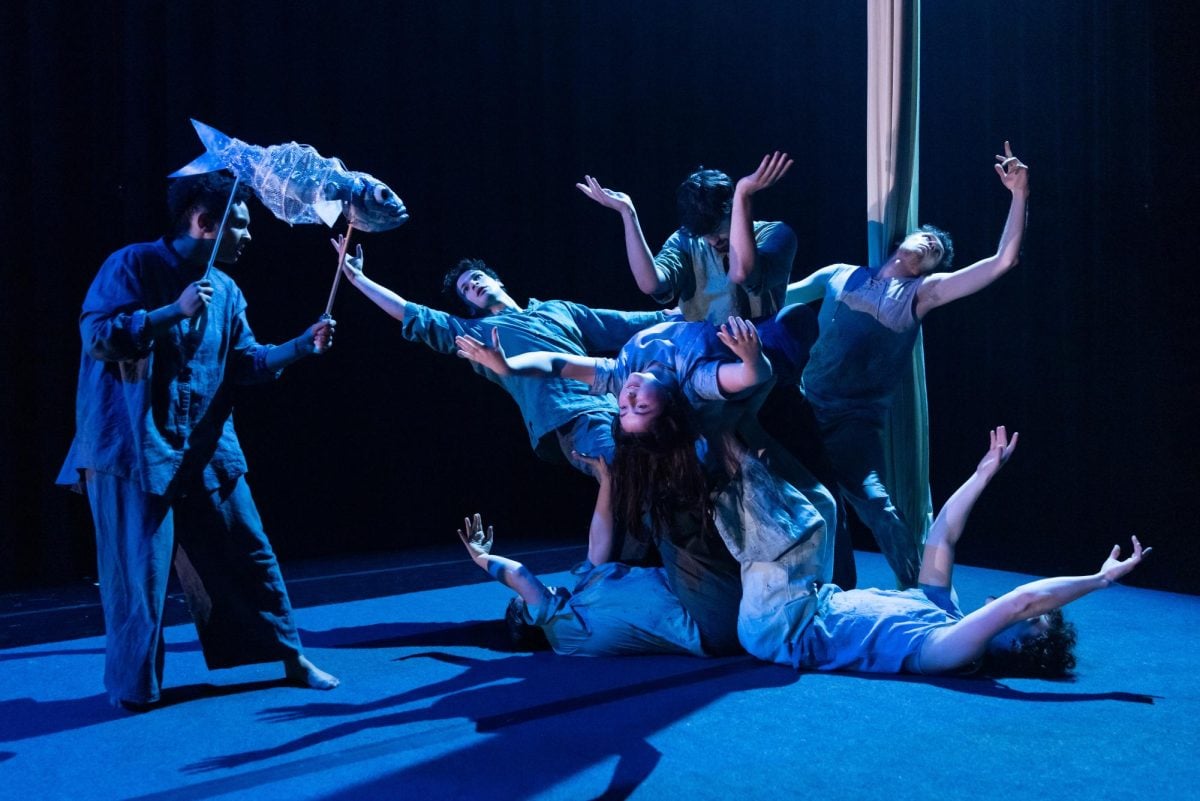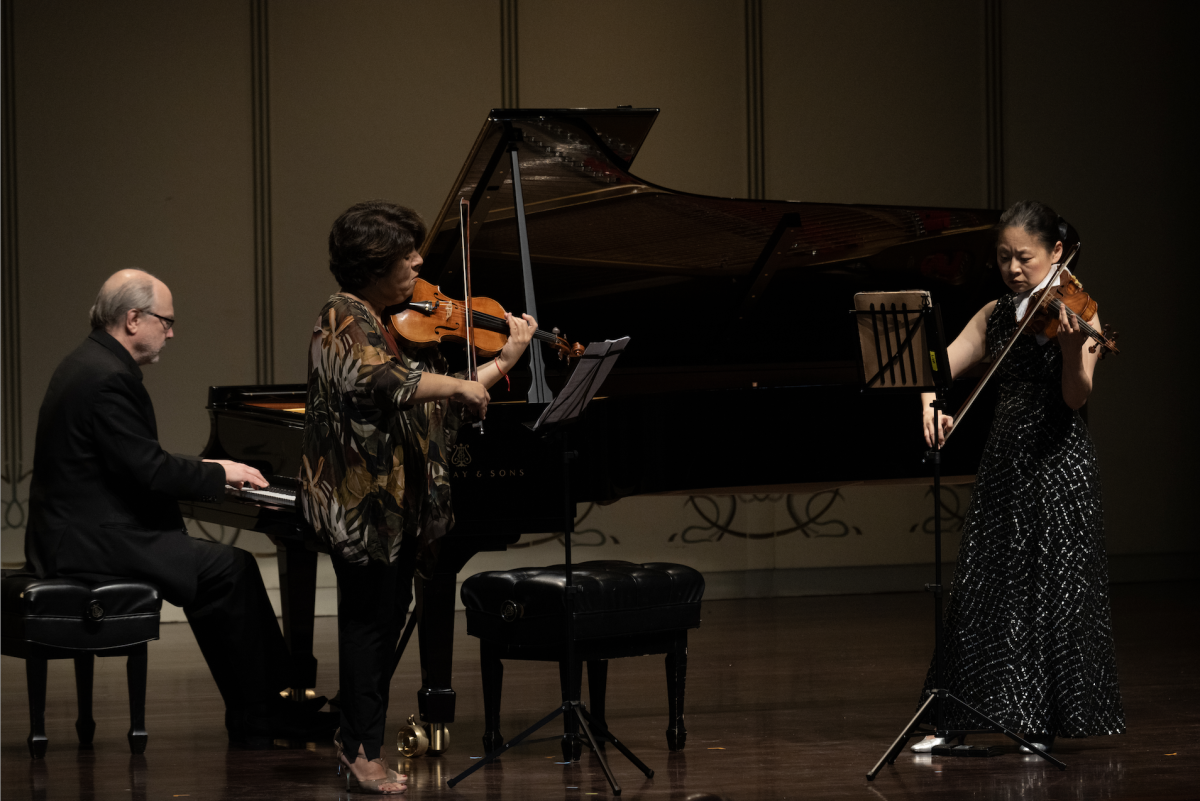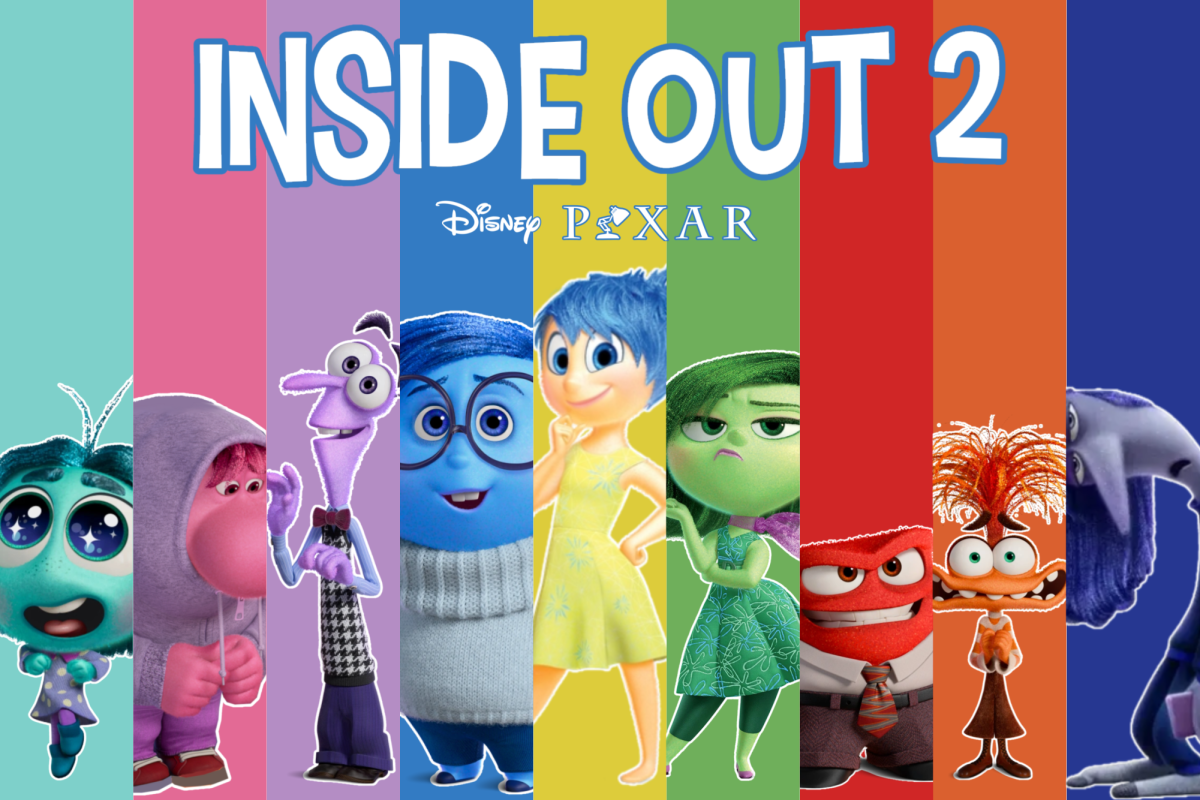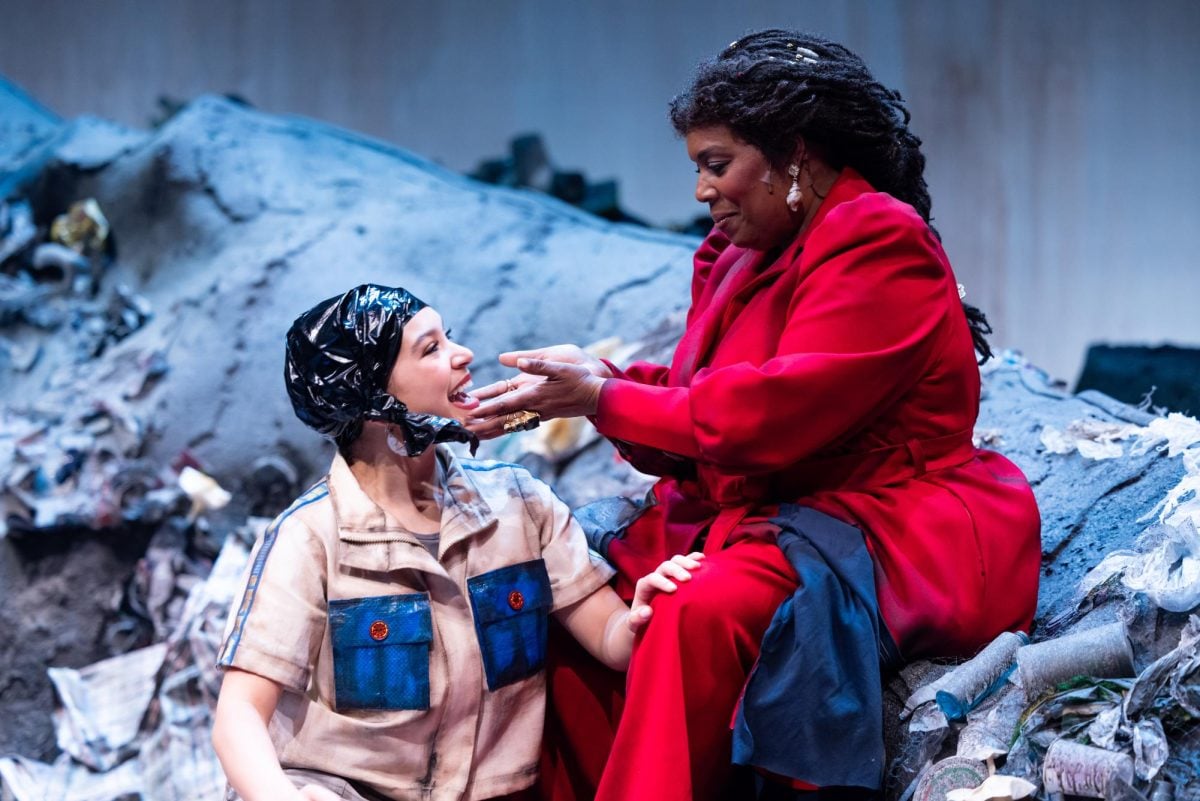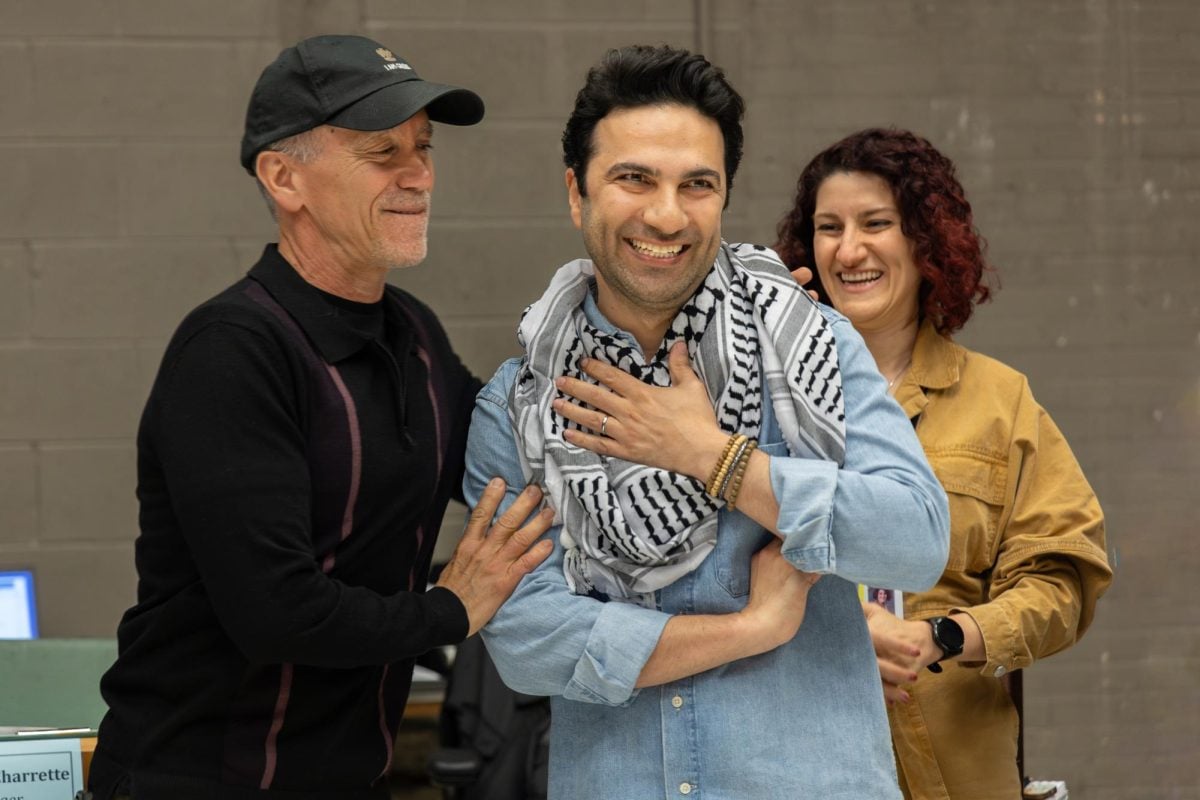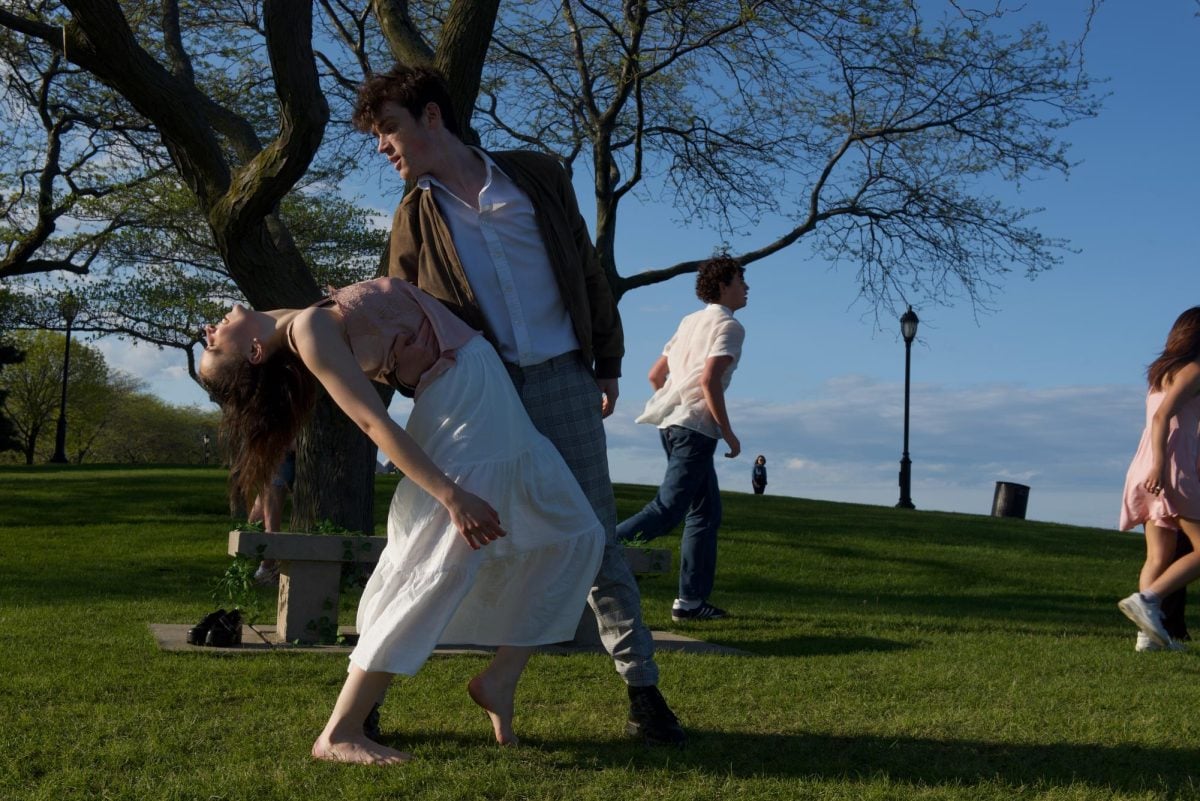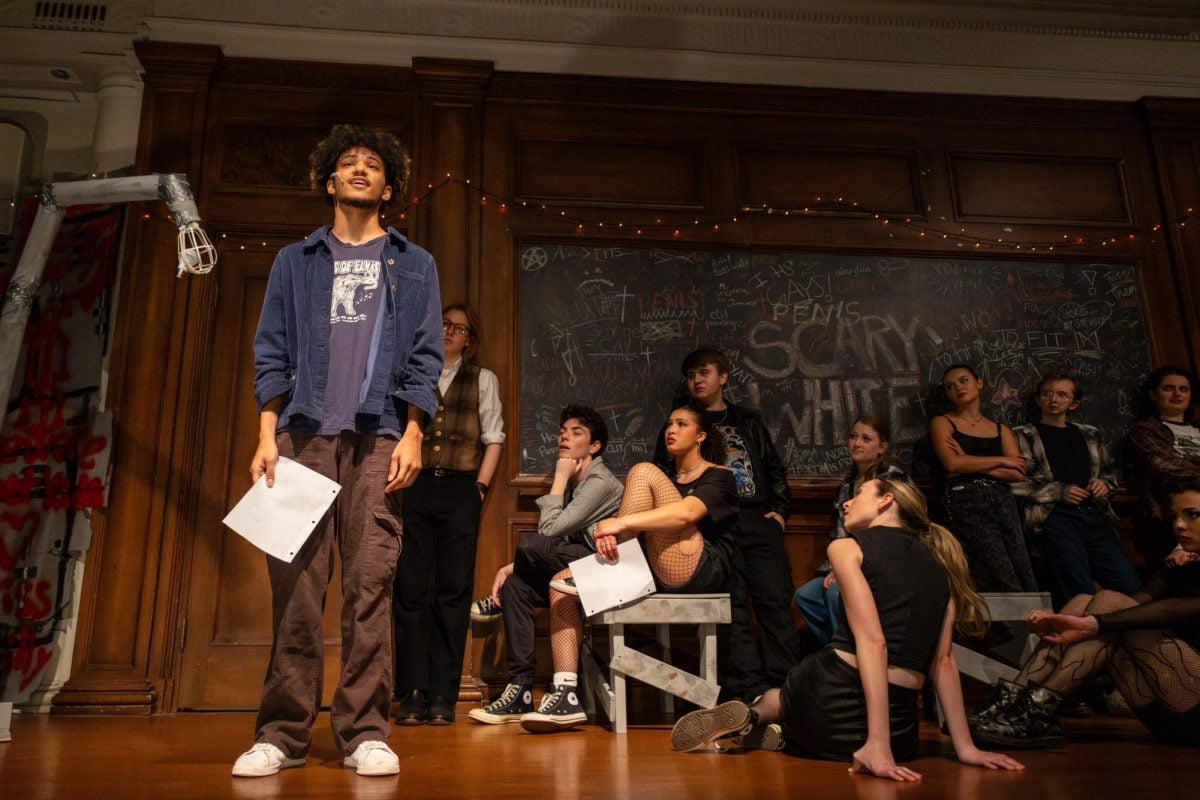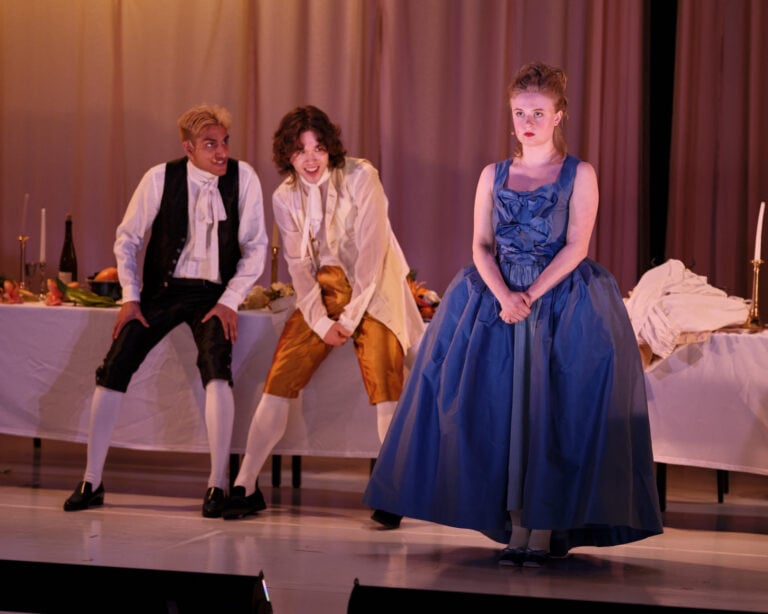A metaphorical show about the first trans-Atlantic telegraph cable, the Virginia Wadsworth Wirtz Center for the Performing Arts’ “The Great Sea Serpent” explored the intrusive impact humankind can have on our planet.
The sold-out play, which follows a small fish investigating the “serpent” of the cable after it is laid in the ocean, ran Friday, Saturday and Sunday at the Clara, Lu ‘n’ Em Theater.
Communication professor David Catlin, the play’s director, said the all-student cast went beyond traditional theatre skills to become physical storytellers. He said they operated and animated skeletal puppets to create the feeling of being underwater and performed “gravity-defying” acrobatic tricks.
“It is the kind of theatre that engages every part of who you are as a person and how you perceive the world,” he said. “There’s great, beautiful, poetic text that you can process in an auditory way, but then there’s this movement so you have a kinesthetic experience and the circus gives you a visceral experience.”
Playwright and Communication professor Tracy C. Davis said “The Great Sea Serpent” was inspired by Hans Christian Andersen’s fairy tale of the same name. Davis began writing the play over a year ago, beginning to figure out how the story would unfold after attending an acting workshop in December 2022 where participants worked to portray sea creatures using their bodies.
Davis said her work continued to develop as the cast rehearsed and made requests for changes.
“A week ago, we had a totally different ending,” she said. “It’s a really textured thing, to draw together the story, to connect things for the audience, I hope in ways that are impactful.”
Davis and Catlin instructed the cast in Theatre 370: Special Topics in Acting. The students researched their roles through a visit to the Shedd Aquarium, lessons at the aquatic center and a behind-the-scenes viewing of Song of the North, which was part of the Chicago International Puppet Theater Festival.
Catlin said experiences like this differentiate Northwestern’s theatre program by letting context inform the cast’s acting choices.
“Being able to marry art and intellect together, scholarship and artistry, was very special,” Catilin said.
Following Friday’s performance, the 12 cast members gathered — many of them still barefoot from their portrayal of sea creatures and deities — for a “talkback” about the show.
During the talkback, audience member Bonnie Starr said the cast had honored her late partner, David Berolzheimer, through their work. The venue was named in recognition of Berolzheimer’s 2019 gift to the School of Communication in memory of his mother, Isobel Carothers Berolzheimer (Speech ’26).
“Tonight, (David and Isobel) would have wanted to share with you what makes you happy,” she said. “You can see in all of your actions, on your faces tonight, how happy you are to be doing what you’re doing. Strive for that. Keep striving for that.”
Catlin said while the play does explore themes of climate catastrophe, it is also meant to be a call to action for us to not let the destruction of the undersea world become the cost of human progress.
“If we are not careful and we disrupt that biome, we could disrupt and damage a very important system that captures carbon for us, so (our climate and environment) are really connected,” he said. “That’s a big part of it. It’s thinking about humankind and the impact that our intrusions can have.”
Email: [email protected]
Twitter: @jillian_moore7
Related Stories:
— The 93rd annual Waa-Mu Show ‘Taken Away’ makes ambitious choice with trilogy structure
— ‘How to Know the Wild Flowers: A Map’ encourages healing through nature
— From the Wings: Vertigo’s ‘Pity the Woman Who Never Spills’ is a love letter to high school classmates — or is it a hate letter?











